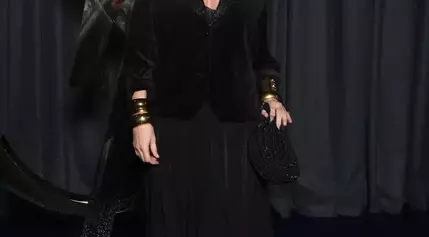

6 Alabama mid-fall food festivals spotlight oysters, sausage, mushrooms, wine and more
This article highlights six food festivals taking place in Alabama in October and early November. Th
Hijab-Wearing Influencer Kenza Layli Bags Miss AI Title In First-Ever Virtual Beauty Pageant
The world's first Miss AI title was awarded to Moroccan activist and influencer Kenza Layli, who won
Check Out This Little Robot Animaton from a Shooter Made in UE5
The article describes an upcoming shooter game called "Machine Match" created by Corner Studio Games
Tinderbox, IPX Bring Line Friends and BT21 to Video Games, Digital Experiences
Tinderbox, the digital division of brand extension agency Beanstalk, has partnered with IPX, the dig
Bicyclist hit and killed by car in Bradenton: FHP
A 45-year-old Bradenton man was tragically killed after being hit by a car while riding his bicycle
Sheriff: Man arrested after striking another car, killing man during pursuit
A man has been arrested after a police pursuit resulted in a fatal crash in Colerain Township, Ohio.
Offerman's Unexpected Foray into the World of Margo's OnlyFans Venture
Nick Offerman has joined the cast of the upcoming Apple TV+ series "Margo's Got Money Troubles," whi
Kate Moss, Zoe Kravitz & More Attend Saint Laurent’s Spring 2025 Show at Paris Fashion Week
Saint Laurent showcased its spring 2025 collection during Paris Fashion Week, with Creative Director
Volunteers' Thanksgiving Food Drive: Over 1,000 Turkeys Distributed
On Saturday, hundreds of volunteers distributed over 1,000 turkeys to those in need. The SOS Marysvi
July retail food inspection report released
The Jackson County Health Department's retail food inspection report for July highlights critical an
Bronzeville Week: Celebrating Milwaukee’s rich tapestry of art, culture, and community
The article highlights Bronzeville Week, an annual event in Milwaukee that celebrates the city's ric
Dries Van Noten Takes His Exit
Dries Van Noten, the renowned fashion designer, has announced his retirement after selling his compa
Developer of Viral Banana Game Says It’s Not Scam
The article discusses a team member, Theselions, who was previously involved in a Bitcoin scam on th
Xenoblade Chronicles composer to contribute music for Metroidvania Bō
Xenoblade Chronicles composer Manami Kiyota has joined the team behind the upcoming Japan-inspired M
Butts in Seats: Still Top Way To Get People Buying Electric Cars
The article discusses the growing adoption of electric vehicles (EVs) and the importance of getting
ALF child star Benji Gregory found dead in car alongside his dog
Benji Gregory, best known for his role as Brian Tanner in the 1980s sitcom ALF, has passed away at t
Gen Z men want partners to earn less money than them
The article explores the generational differences in attitudes towards income disparity between part
Harrison Ford says acting in Marvel film required him to be ‘an idiot for money’
Harrison Ford, the renowned actor, is set to play the Red Hulk in his first Marvel film. Despite his
Expert tips to teach teens about money
The article highlights the importance of parents talking to their kids about money, particularly thr
Darlington lottery winner makes big plans with prize money
A Darlington man has won a 0,000 prize from a lottery ticket. He is holding onto the money, p